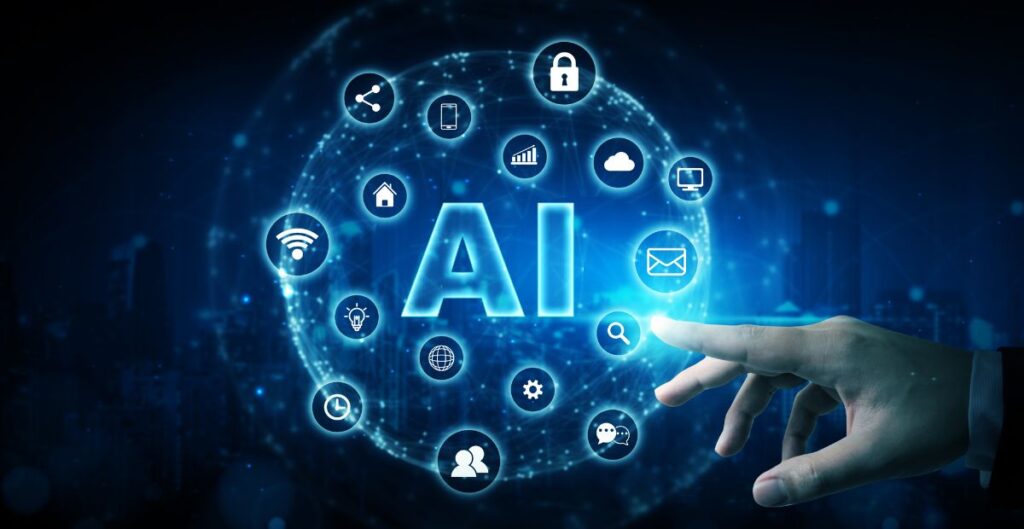Healthcare organizations using AI in Data analytics tools revolutionize medical diagnosis procedures as well as hospital resource control and pharmaceutical treatment research efforts. Artificial intelligence systems achieve faster data analysis along with higher accuracy and better efficiency than human capabilities. Patients can expect better care from medical practitioners because AI-led data analysis reduces errors and helps identify risks along with optimizing treatment outcomes.
The discussion will examine practical AI implementations in healthcare followed by an analysis of medical research diagnosis capabilities with a response to recurrent questions regarding healthcare data analytics implementation.
- How is AI Used in Healthcare Data?
- How is Data Analytics Used in the Healthcare Industry?
- How Can AI Be Used in Data Analytics?
- What is the Most Commonly Used AI in Healthcare?
- Applications of AI in Healthcare
- AI in Healthcare Research and Innovation
- Challenges and Ethical Concerns of AI in Healthcare
- Final Thoughts: Why Healthcare Organization Using AI in Data Analytics is Essential
How is AI Used in Healthcare Data?
AI helps process and analyze large amounts of medical data. Hospitals and research centers use AI to:
- Identify patterns in patient symptoms and medical history
- Predict disease outbreaks and health risks
- Automate medical imaging analysis
- Improve electronic health records management
A good example of this technology can be seen in AI-powered radiology software able to inspect X-rays and MRIs to identify cancer along with fractures or infections faster than doctors accomplish the task. Through detection and by speeding up diagnostic processes AI technology is transforming the medical diagnosis system.
How is Data Analytics Used in the Healthcare Industry?
The analytic examination of healthcare information leads medical staff and facility administrators to improve decision-making results. AI-powered analytics is used to:
- Track patient recovery progress and predict complications
- Optimize hospital staffing based on patient admissions
- Detect fraudulent insurance claims
- Develop personalized treatment plans
For instance, Through analysis of patient data patterns AI generates food recommendations and treatment choices suitable for diabetic patients based on their life activities and health records. Doctors and researchers are presently using predictive analytics in medical environments to improve therapeutic accuracy.
How Can AI Be Used in Data Analytics?
AI improves data analytics by making it faster and more accurate. AI accelerates and enhances the precision of data analytics operations. It helps in:
- Predicting diseases before symptoms appear
- Finding patterns in large medical datasets
- Recommending treatments based on patient history
- Reducing human errors in data processing
Hospitals using AI in data analytics have reported fewer misdiagnoses, lower costs, and better patient care. The modern healthcare industry adopts numerous AI-driven healthcare innovations that produce clinical knowledge from data.
What is the Most Commonly Used AI in Healthcare?
The healthcare industry currently utilizes these AI technologies amongst others for its daily operations:
- Machine Learning (ML) – Predicts diseases and recommends treatments
- Natural Language Processing (NLP) – Reads and understands medical notes
- Robotic Process Automation (RPA) – Handles hospital paperwork automatically
- Computer Vision – Examines X-rays, MRIs, and CT scans
- AI Chatbots – Help patients with health questions and appointments
AI-powered virtual assist systems in numerous hospitals enable booking appointment services alongside health question responses to patients through their platforms.
Applications of AI in Healthcare
1. AI in Medical Imaging and Diagnosis
Artificial Intelligence enables medical professionals to identify diseases including cancer together with pneumonia and heart conditions at a faster pace. Such medical analysis software looks through medical scans to pinpoint upcoming risks and avoid incorrect diagnoses.
2. Predicting Patient Admissions and Staffing Needs
AI system within hospitals assists with forecasting patient treatment requirements each day. This helps manage staffing, bed availability, and medical supplies more effectively.
3. AI in Drug Discovery
With artificial intelligence, drug research reaches its targets at a quicker pace because it takes only weeks to find potential treatments instead of requiring years to identify them. The technology was particularly helpful when vaccines for COVID-19 were being developed. The impact of AI in drug discovery is already leading to breakthroughs in medicine.
4. AI in Surgery
Medical personnel who use robotic surgery technology can conduct less complex surgical procedures which results in both reduced medical problems and expedited patient healing times.
5. Virtual Health Assistants
Through AI chatbots patients obtain help for arranging appointments together with medicine alert features and basic medical inquiries.
AI in Healthcare Research and Innovation
Medical Research with AI
AI helps researchers analyze large datasets to develop new treatments. It is used in:
- Genomic studies to understand genetic diseases
- Clinical trials to find effective medicines faster
- Epidemiology to track disease outbreaks
Researchers have discovered that artificial intelligence delivers superior results at assessing heart disease dangers compared to conventional techniques.
AI-Powered Data Analysis in Healthcare
Hospital personnel depend on AI systems to identify epidemiological patterns alongside advancing treatment effectiveness for patients. Thousands of patient records undergo AI analysis to detect the most productive therapies used in treating diabetes cancer and Alzheimer’s.
Challenges and Ethical Concerns of AI in Healthcare
While AI is transforming healthcare, there are challenges:
- Data privacy concerns – AI systems must protect patient information
- Bias in AI models – AI should be trained on diverse medical data
- High implementation costs – AI adoption requires investment in new technology
Healthcare organizations must prove their ethical AI practices to patients while obtaining better treatment results.
Final Thoughts: Why Healthcare Organization Using AI in Data Analytics is Essential
The healthcare field employs artificial intelligence to enhance detection capabilities together with treatment plans and patient healthcare quality. Through its effective management of hospital data structures the system enables better cost reduction and enhanced medical research performance.
Healthcare organizations that use AI analytics for data management will provide better patient results while remaining leaders in medical services.






